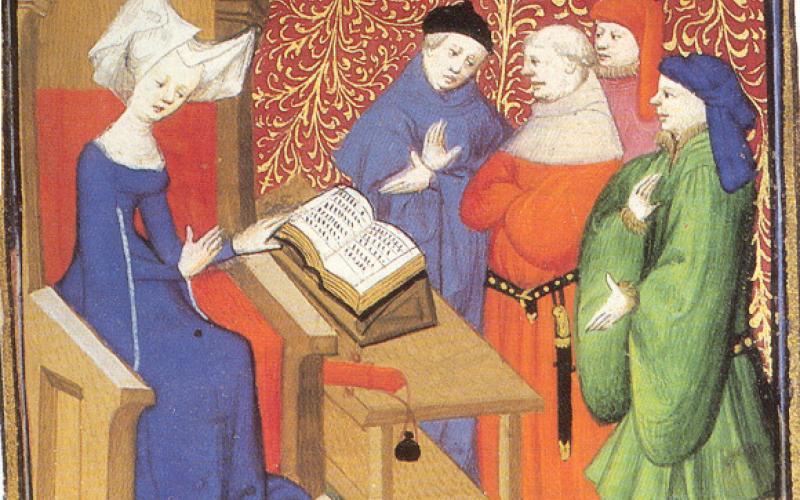
Translating Medieval Texts
Renate Blumenfeld-Kosinski, Institute for Advanced Study and University of Pittsburgh
September 27, 2021 · 12:30 pm—1:30 pm · Zoom
Program in Translation and Intercultural Communication; Program in Medieval Studies

Medieval culture was a culture of translation. From science to literature and religious texts, translation was the lifeblood of intellectual exchange and development. For us moderns, medieval texts pose special challenges from technical/material, linguistic, and interpretative perspectives. What exactly are we translating when multiple manuscripts of a text exist, when critical editions have already made choices from variant readings? How do we make often convoluted Middle French syntax “sound” English? Should it? How much archaism or “Verfremdung” do we want? Which texts from the vast area of medieval literature should we translate and why? I will discuss some of the choices I made for my own translations of religious and secular texts (mostly by medieval women writers) and illustrate some of the problems I confronted.
After a multi-lingual education in Germany Renate Blumenfeld-Kosinski received her PhD in Romance Languages at Princeton University. She taught French literature at Columbia University and the University of Pittsburgh. After her retirement as Distinguished Professor of French in 2019 she served as President of the Medieval Academy of America. Currently a Visitor in the School of Historical Studies at IAS, she has translated a variety of medieval texts into English: from Latin, Franco-Provençal, Catalan, and especially from Middle French. Most recently she translated the two Middle French Lives of Saint Colette of Corbie (d. 1447), the great Franciscan reformer, written by a male confessor and a nun, requiring special attention to gendered language and stylistic register.















